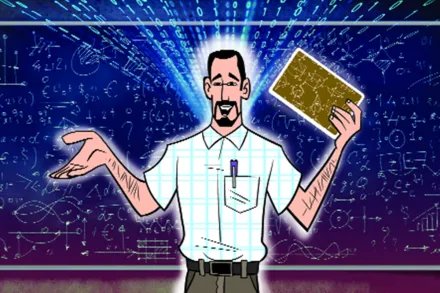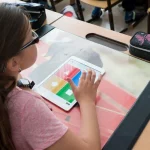- December 9, 2023
- by Educational Initiatives
- Blog
- 0 Comments
This article appeared in Financial Express on 4 January, 2021
In 2021, we will see a more blended approach in education and an increased adoption of edtech platforms that are personalised and focused on diagnosing and resolving learning gaps.
We have seen that absence of pedagogy aligned to online classes is leading to a shortfall in the knowledge transfer and teachers are unable to calibrate the pace of teaching, which is leading to sub-optimal learning.
Amidst the ongoing pandemic, students have been studying online for the past several months, though the biggest concern with this new education structure is whether the learning outcomes are satisfactory or not? While online learning is here to stay, we need to ensure students learn adopting a scientific approach to learning. We have seen that absence of pedagogy aligned to online classes is leading to a shortfall in the knowledge transfer and teachers are unable to calibrate the pace of teaching, which is leading to sub-optimal learning. Lack of regular diagnostic assessments is also resulting in unclear learning outcomes.
To overcome these challenges, we will see the following trends emerging in 2021:
Blended learning approach: Technology in learning combined with the existing classroom approach can help in achieving significant improvements in both the teaching and learning process. Today, there are innovative methods that combine classroom learning with digital learning solutions, which can help increase a student’s engagement through a personalised learning approach and gamification. This will help in gaining undivided attention of students as it keeps them engaged and allows them to learn the topic at own pace, wherein they are able to grasp what they are learning. Artificial intelligence, machine learning, augmented reality and virtual reality can transform the delivery of education with the support of digital tools to create an immersive learning environment. This interactive technique can provide a better experience with two-dimensional ways to showcase the content than traditional pedagogy in the form of textbooks. The blended learning approach helps make education easily accessible, while promoting peer-to-peer interaction over classroom sessions, which can result in better learning outcomes.
Importance of assessment: Data-driven technologies and content analytics can be used to assess the understanding of students, identify gaps in learning and provide solutions to students at an individual level. The New Education Policy (NEP) has laid emphasis on assessment reforms and introduced the National Assessment Centre (PARAKH) to monitor learning outcomes regularly. Through this, we expect a clear shift away from rote learning and towards genuine understanding.
Localised content for learning: The NEP’s focus on introducing the mother tongue as the primary mode of instruction in lower classes can significantly change the teaching and learning process. Pedagogical research has recognised that children learn the best when they learn in their mother tongue (or local language) in primary classes. Additionally, making content available to students in their mother tongue and localising it as per student requirements will be beneficial for students across all socioeconomic backgrounds in India.



